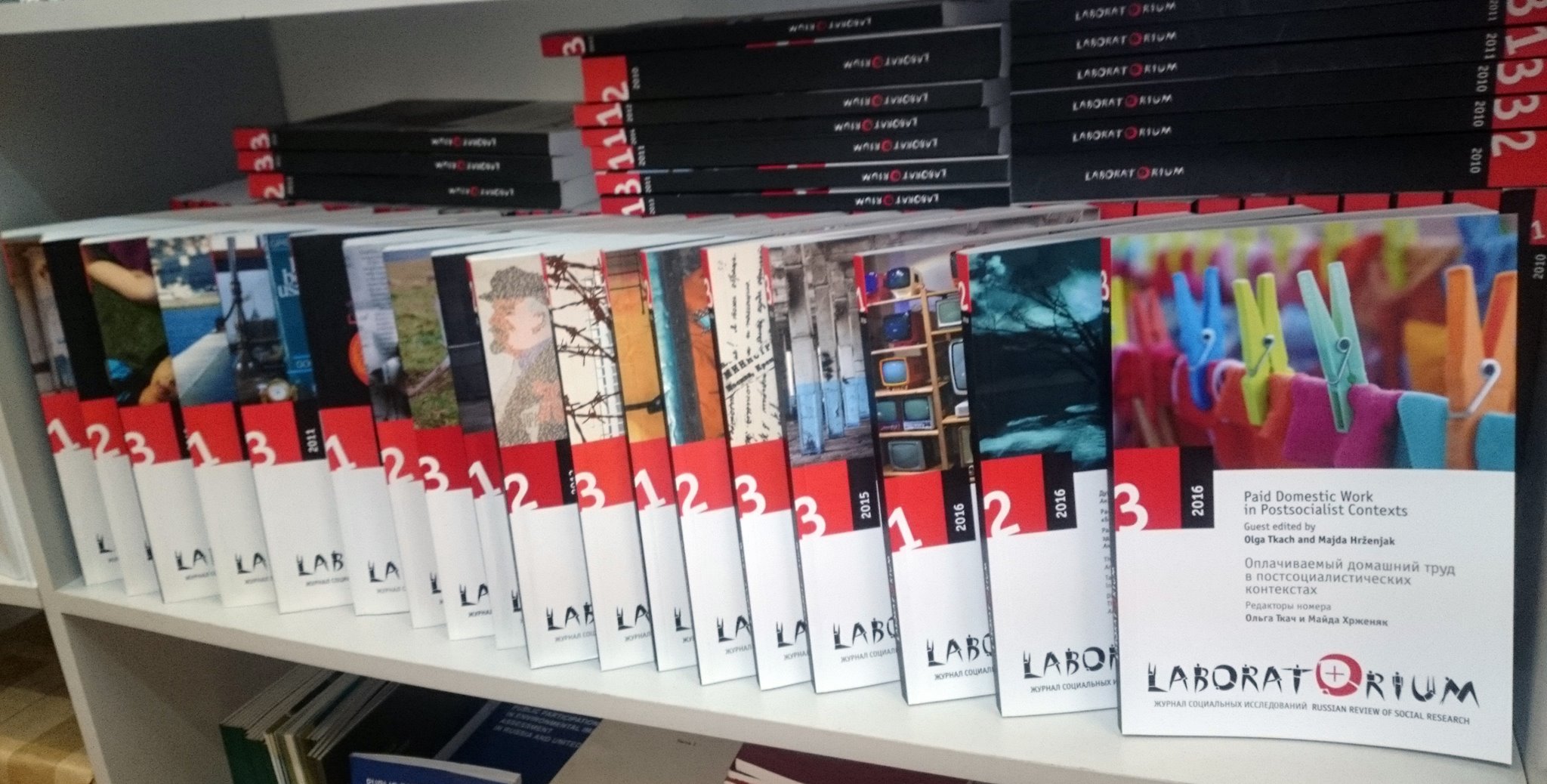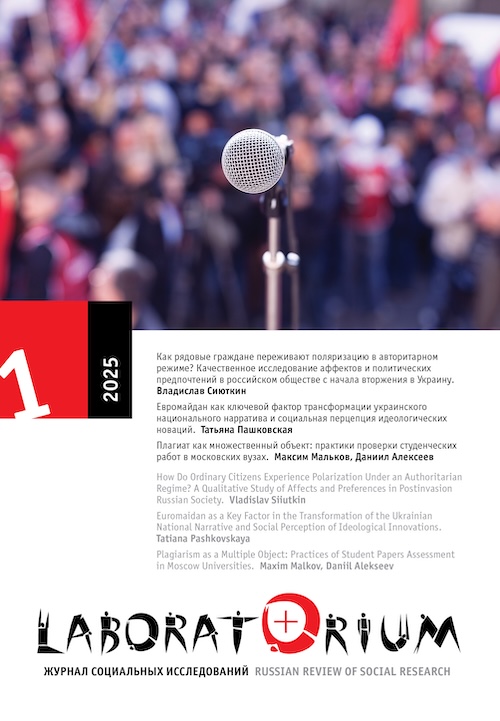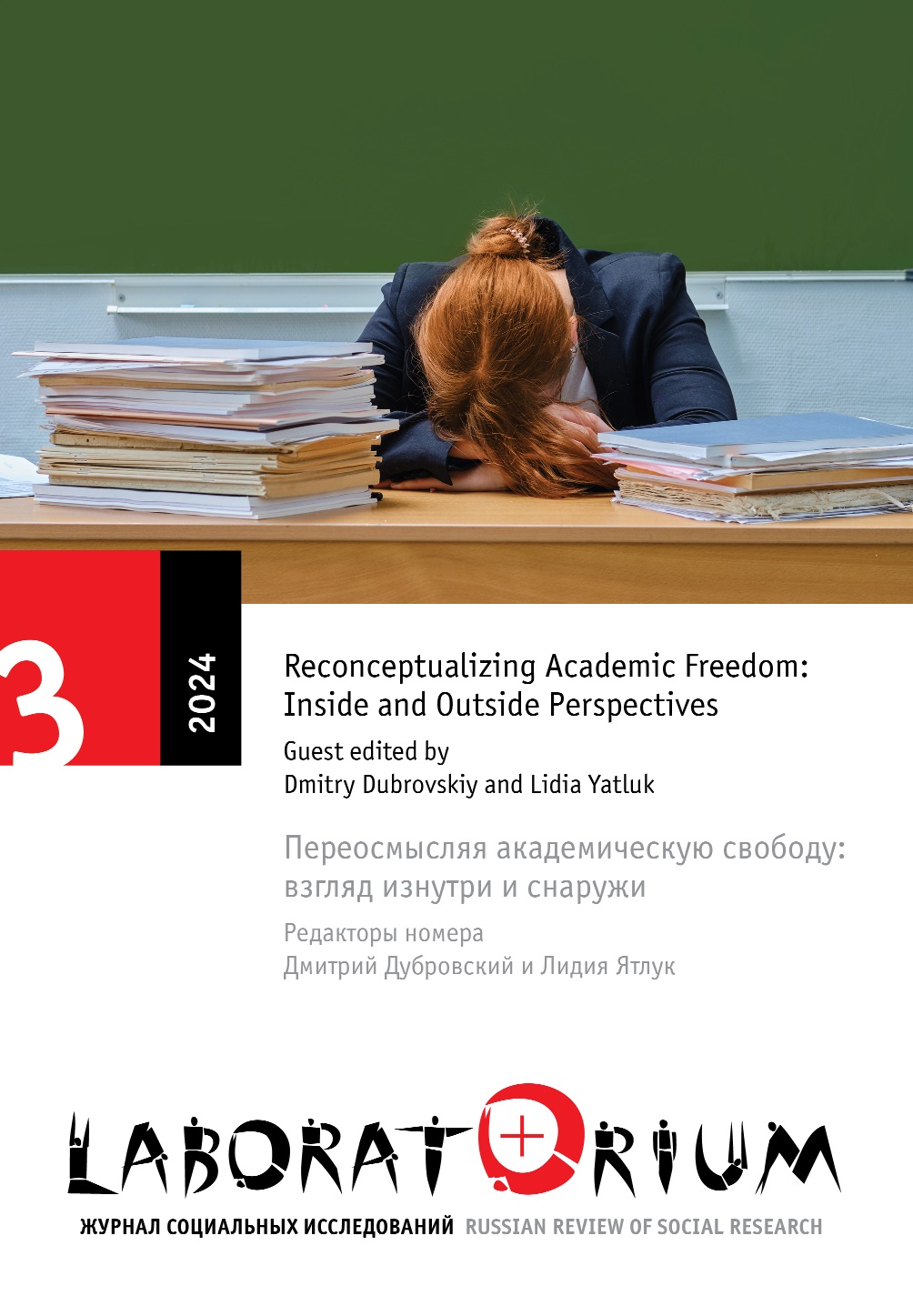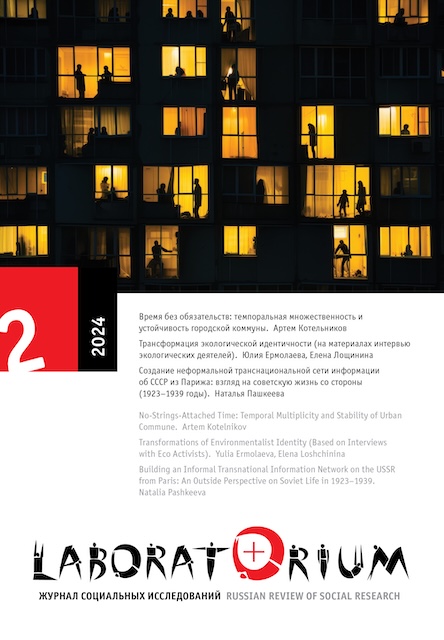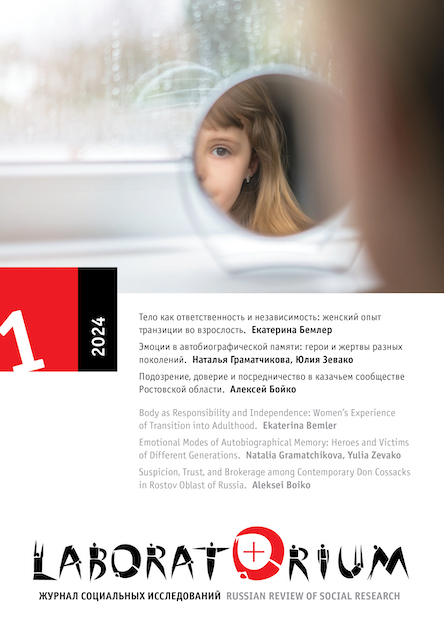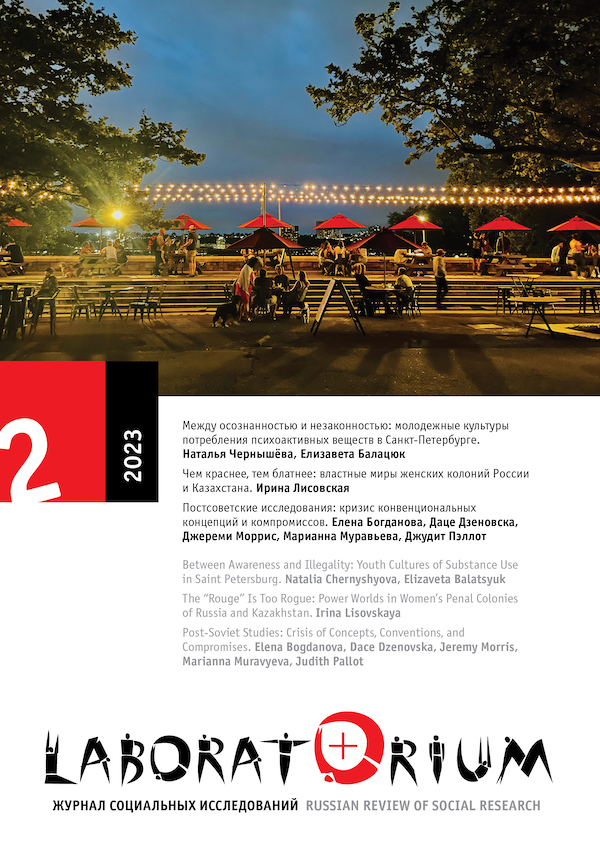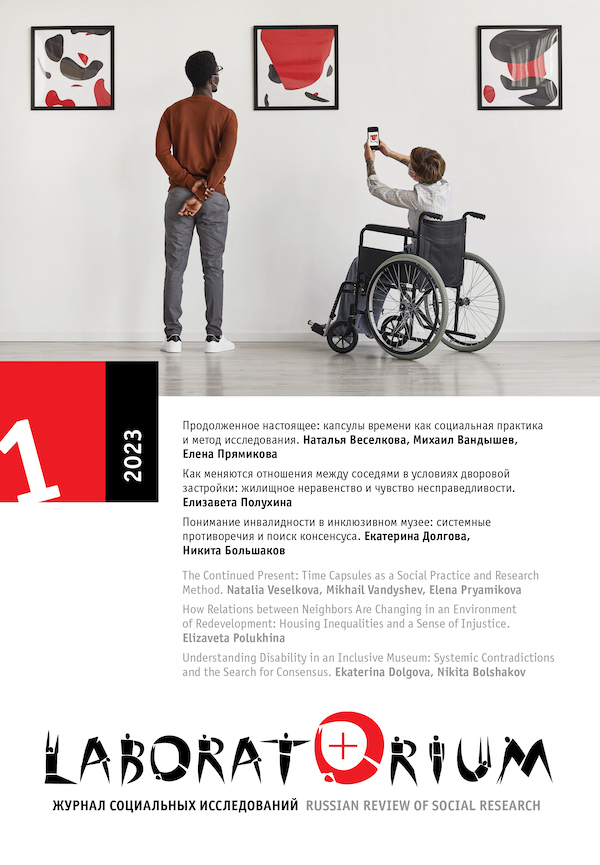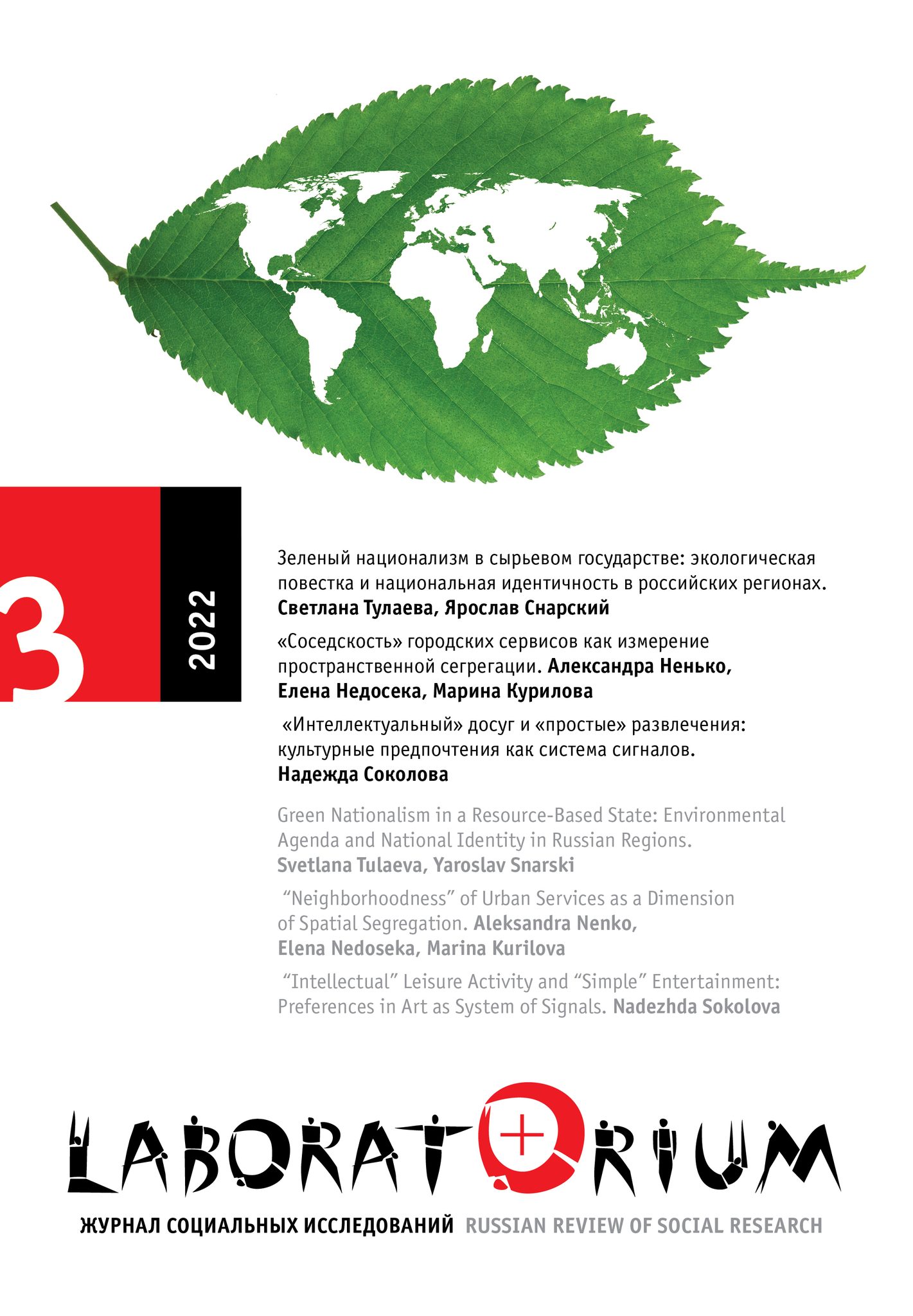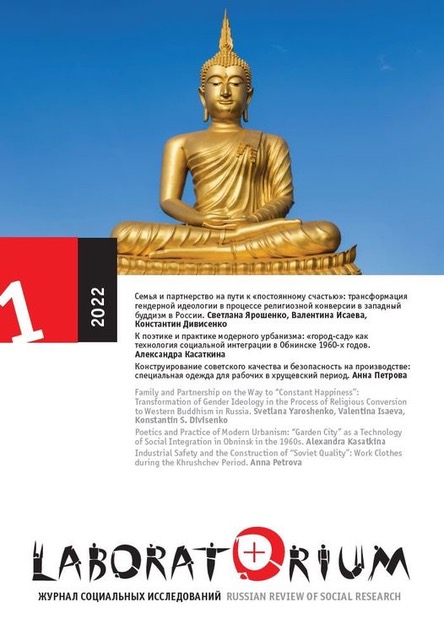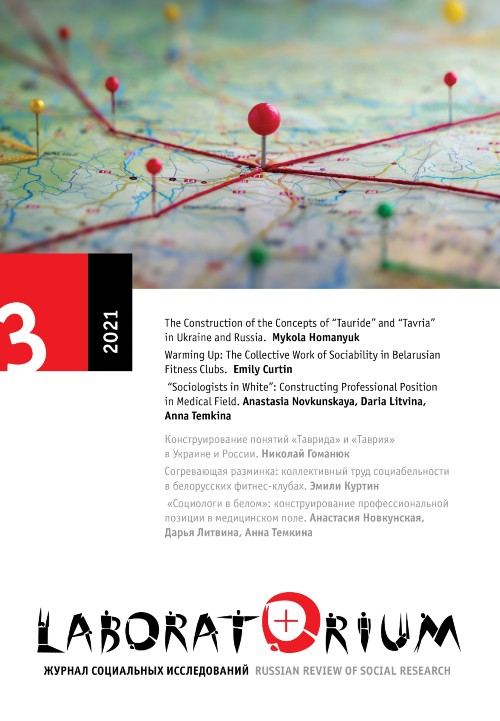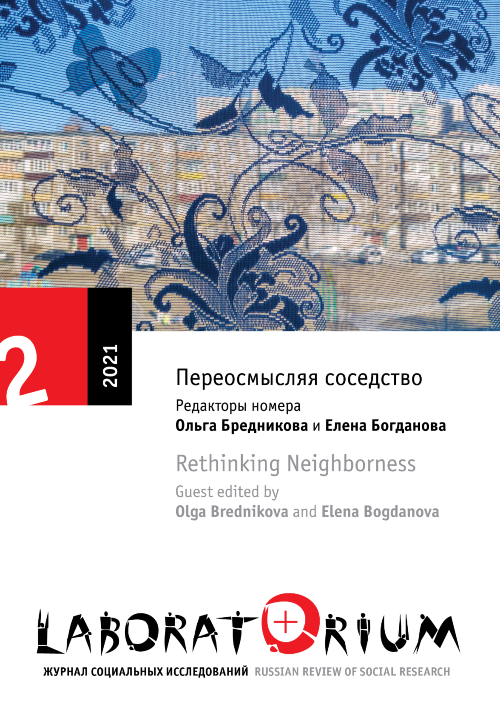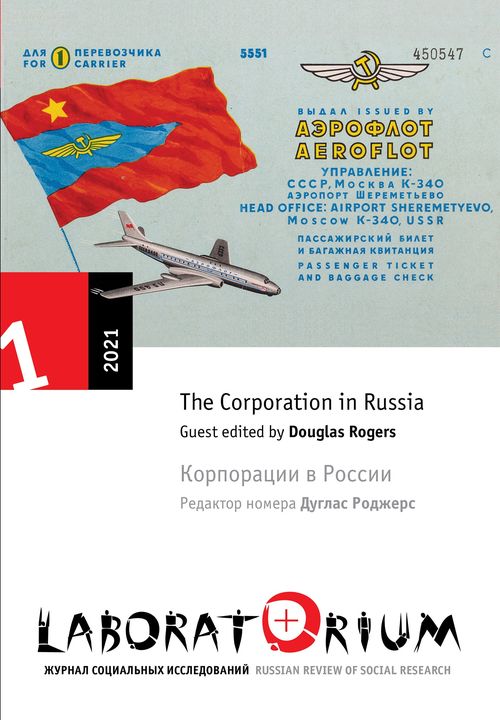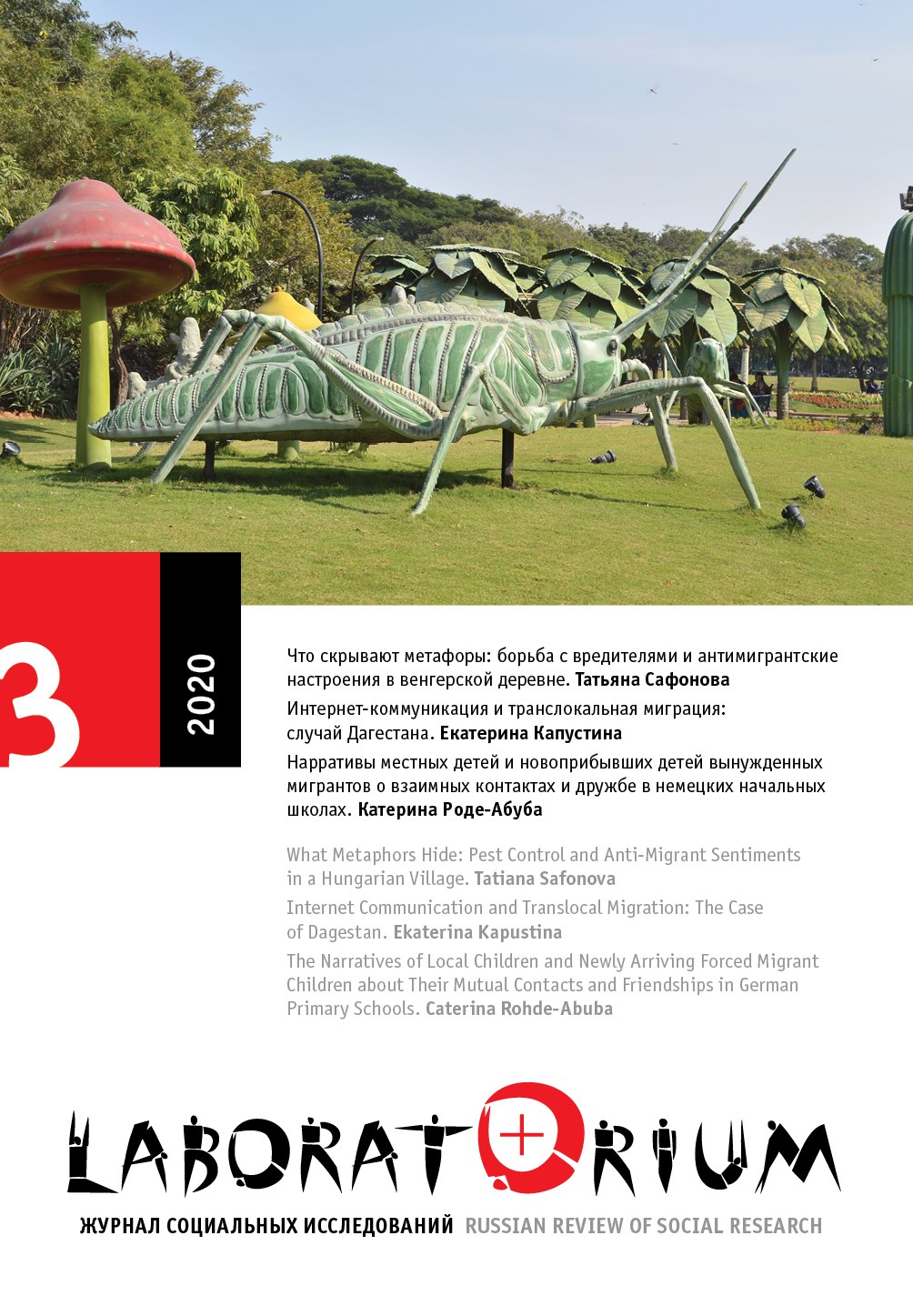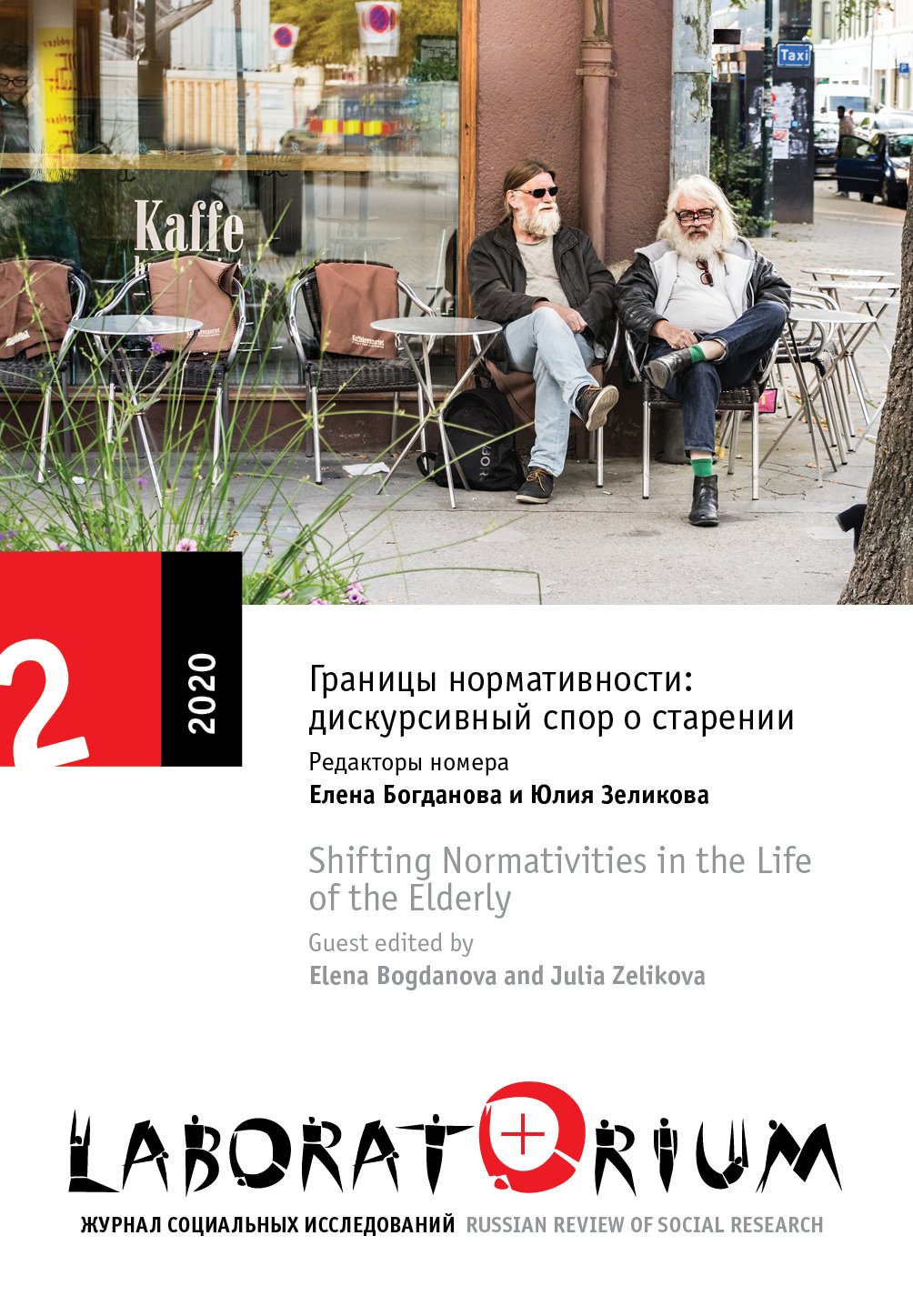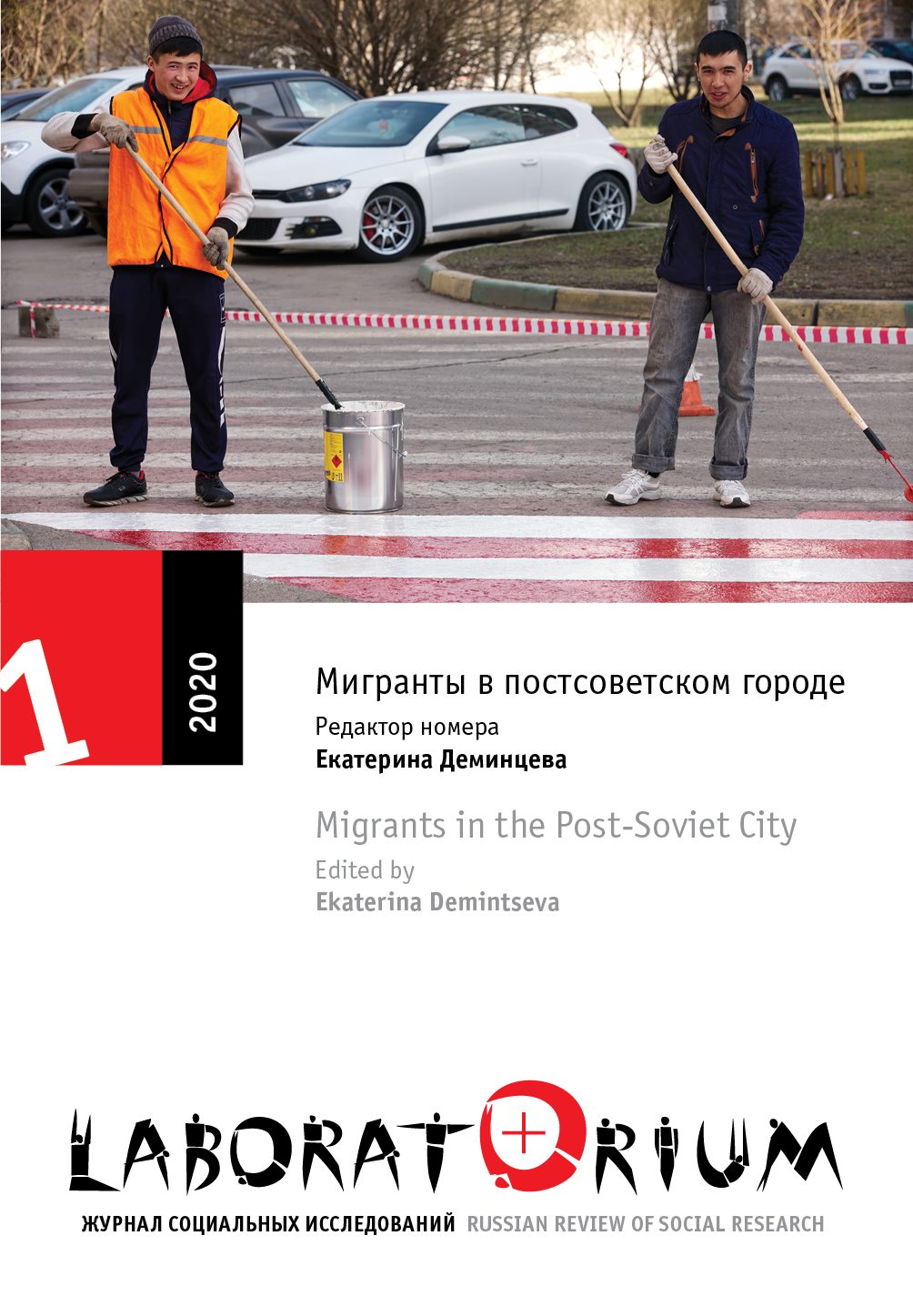About the Journal
Laboratorium: Russian Review of Social Research is an open-access, peer-reviewed journal in social sciences, established by the Centre for Independent Social Research (Saint Petersburg, Russia) and produced by an international group of scholars. The bilingual (Russian and English) journal comes out three times a year and publishes materials based on empirical qualitative social research.
Latest Issue
Vol. 17 No. 1 (2025)
Lead editor: Anna Paretskaya
Articles
Vladislav Siiutkin
Tatiana Pashkovskaya
Plagiarism as a Multiple Object: Practices of Student Papers Assessment in Moscow Universities
Maxim Malkov, Daniil Alekseev
Resourcified Bodies: Women Miners’ Narratives of Limits, Resistance, and Creativity
Anna Varfolomeeva
Svetlana Tulaeva, Ekaterina Semushkina
Social Foundations of Explanatory Models in Oocyte Donation
Irina Polyakova, Anastasia Shvetsova, Elvira Symanyuk
Review Articles
There Is No Such Thing as Natural Disasters: Key Approaches in Social Studies of Disasters
Alexandra Barmina, Fedor Veselov, Alisa Alieva, Arsenii Verkeev
Essays
Previous Issues
Vol. 16 No. 3 (2024)
Reconceptualizing Academic Freedom: Inside and Outside Perspectives
Vol. 16 No. 2 (2024)
Vol. 16 No. 1 (2024)
Vol. 15 No. 3 (2023)
Vol. 15 No. 2 (2023)
Vol. 15 No. 1 (2023)
Vol. 14 No. 3 (2022)
Vol. 14 No. 1 (2022)
Vol. 13 No. 3 (2021)
Vol. 13 No. 2 (2021)
Rethinking Neighborness
Vol. 13 No. 1 (2021)
The Corporation in Russia
Vol. 12 No. 3 (2020)
Vol. 12 No. 2 (2020)
Shifting Normativities in the Life of the Elderly
Vol. 12 No. 1 (2020)
Migrants in the Post-Soviet City
@soclabo
oparfenova@soclabo.org


